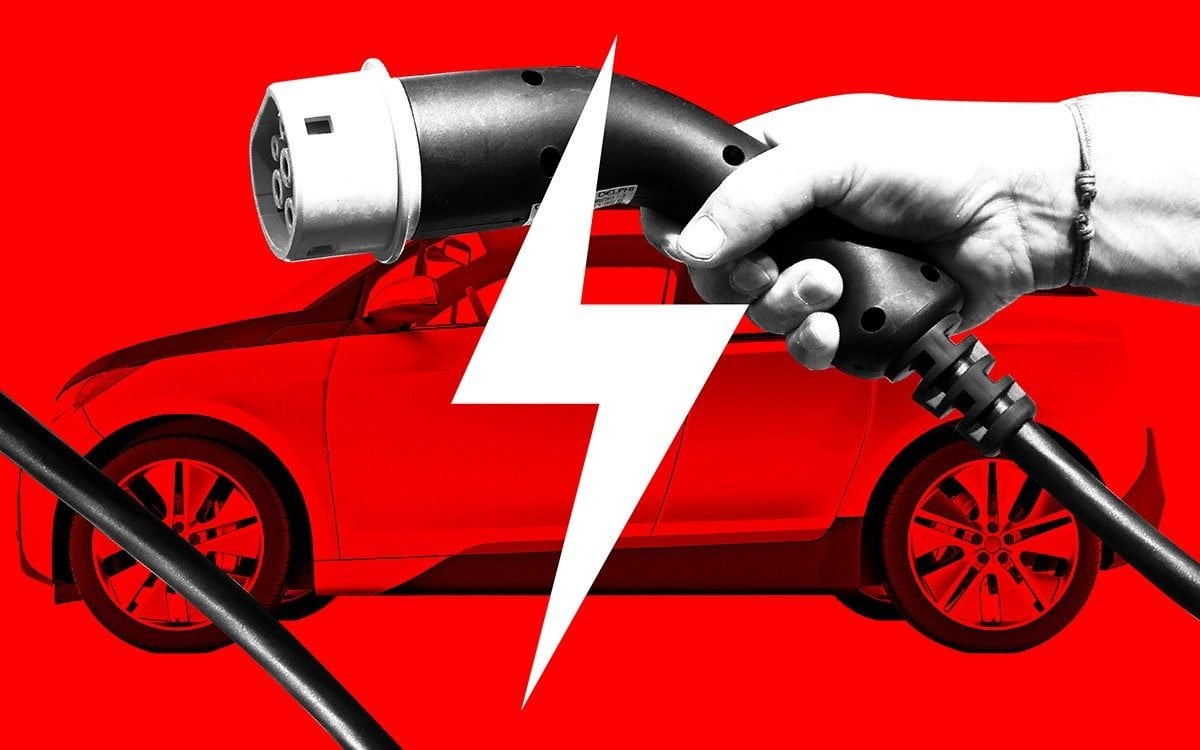Auto Dealers Intensify Fight Against Electric Vehicle Regulations

Table of Contents
The rapid rise of electric vehicles (EVs) is causing a major rift in the automotive industry, with auto dealers intensifying their fight against increasingly stringent EV regulations. The shift towards electric mobility is undeniable, with sales figures consistently climbing, but the transition is not without its friction. This article explores the central conflict – the push for widespread EV adoption versus the significant concerns and resistance from auto dealerships facing these electric vehicle regulations. We'll examine the financial implications for dealerships, their opposition to mandates, their lobbying efforts, and the crucial role of consumer perception in navigating this complex landscape.
<h2>Financial Concerns of Dealerships Transitioning to EVs</h2>
The transition to an EV-centric market presents considerable financial hurdles for dealerships. Adapting to the sale and servicing of EVs requires substantial upfront investment, posing a significant challenge to many businesses, particularly smaller dealerships. The financial burden stems from several key areas:
-
High cost of installing EV charging stations: The infrastructure needed to support EV sales necessitates significant investment in charging stations, including the purchase, installation, and maintenance of charging equipment. This can be particularly expensive for dealerships located in areas with limited existing infrastructure.
-
Need for specialized technician training on EV repair and maintenance: EVs require specialized knowledge and tools for repair and maintenance, different from those used for internal combustion engine (ICE) vehicles. Training technicians to service these vehicles represents a substantial expense, impacting operational costs.
-
Reduced service revenue due to lower maintenance requirements of EVs: Electric vehicles have fewer moving parts than ICE vehicles, resulting in less frequent and less extensive maintenance needs. This translates to a significant reduction in service revenue for dealerships, impacting profitability.
-
Impact on used EV market valuation and trade-in values: The used EV market is still developing, making it difficult to accurately assess the value of used EVs. This uncertainty impacts trade-in values and can affect the dealership's ability to effectively manage inventory and profit margins. The fluctuating value of used EVs also adds a layer of complexity to financial planning for dealerships.
<h2>Resistance to EV Mandates and Quotas</h2>
Dealers are actively resisting government mandates and quotas for EV sales, arguing against forced adoption timelines. Their arguments center around concerns about consumer readiness and the potential for negative market impacts.
-
Concerns about consumer readiness and demand for EVs: Dealerships argue that consumer demand for EVs isn't yet high enough to justify the aggressive mandates being imposed by some governments. They point to factors like range anxiety, charging infrastructure limitations, and higher purchase prices as obstacles to widespread EV adoption.
-
Arguments against government overreach in dictating market choices: Many argue that government intervention interferes with the natural progression of the market and suppresses consumer choice. They believe that market forces should dictate the pace of EV adoption rather than government mandates.
-
Fear of market saturation and decreased profitability due to forced sales quotas: Dealerships fear that forced sales quotas will lead to market saturation, potentially reducing profitability and creating unsustainable business models. They argue for a more gradual and market-driven transition.
-
Discussion of consumer preferences and the role of choice in the market: The debate highlights the importance of consumer choice in a free market. Dealerships argue for a balanced approach that allows consumers to choose the type of vehicle that best suits their needs and preferences, rather than being pushed towards EVs prematurely.
<h2>Lobbying Efforts and Political Influence</h2>
Auto dealers are employing various strategies to influence EV policies, including significant lobbying efforts, political donations, and targeted public relations campaigns. The automotive dealership lobby is powerful and well-funded, wielding significant influence on legislative processes.
-
Examples of lobbying efforts and their effectiveness: These efforts include direct engagement with legislators, participation in public hearings, and the dissemination of information aimed at shaping policy debates. The effectiveness of these efforts varies depending on the jurisdiction and the political climate.
-
Analysis of campaign contributions and political influence: Significant financial contributions to political campaigns are often made by industry groups, including automotive dealerships. This raises concerns about potential conflicts of interest and undue influence on policy decisions.
-
Public relations strategies used to shape public opinion on EV regulations: Dealerships are actively engaging in public relations campaigns to shape public perception of EV regulations. These campaigns often focus on highlighting the concerns of dealerships and emphasizing the potential negative impacts on consumers.
-
Potential impact of these efforts on future EV policies: The success of these lobbying efforts could significantly shape future EV policies, potentially slowing down the transition to electric mobility or altering the implementation of existing regulations.
<h3>The Role of Consumer Perception and Education</h3>
Addressing consumer misconceptions and fostering greater understanding of EVs is crucial for successful adoption. Consumer perception significantly impacts the success of EV adoption.
-
Addressing range anxiety concerns: Many potential buyers are hesitant due to concerns about limited driving range. Education about charging infrastructure and advancements in battery technology is key to alleviate this concern.
-
Highlighting the environmental benefits of EVs: Clearly communicating the environmental advantages of EVs compared to ICE vehicles can sway public opinion in favor of electric mobility.
-
Dispelling myths surrounding EV charging infrastructure and accessibility: Addressing concerns about charging times, accessibility of charging stations, and the overall convenience of EV ownership is crucial in promoting EV adoption.
<h2>Conclusion: Navigating the Future of Auto Dealers and Electric Vehicle Regulations</h2>
The future of the automotive industry hinges on a complex interplay between economic factors, consumer demand, and government regulations surrounding electric vehicles. This article highlighted the significant financial challenges faced by auto dealerships as they adapt to the EV market and their robust opposition to what they perceive as overly aggressive government mandates. Their lobbying efforts underscore the significant influence the automotive industry wields in shaping policy. However, educating consumers and dispelling misconceptions about EVs is crucial for accelerating the transition to sustainable transportation. Understanding the perspectives of all stakeholders – auto dealers, policymakers, and consumers – is critical in fostering a successful and equitable transition to electric mobility.
Stay informed about the ongoing battle between auto dealers and electric vehicle regulations, and understand the implications of electric vehicle regulations for the future of the automotive industry. For further reading on this complex issue, visit [link to relevant resource].

Featured Posts
-
 Exclusive Internal Conflicts And Leaks Rock The Pentagon
Apr 26, 2025
Exclusive Internal Conflicts And Leaks Rock The Pentagon
Apr 26, 2025 -
 Time Interview Trumps Support For Ban On Congressional Stock Trading
Apr 26, 2025
Time Interview Trumps Support For Ban On Congressional Stock Trading
Apr 26, 2025 -
 Krogkommissionens Recension Stockholm Stadshotell En Grundlig Bedoemning
Apr 26, 2025
Krogkommissionens Recension Stockholm Stadshotell En Grundlig Bedoemning
Apr 26, 2025 -
 Mission Impossibles Final Chapter A Look At Missing Sequels
Apr 26, 2025
Mission Impossibles Final Chapter A Look At Missing Sequels
Apr 26, 2025 -
 American Battleground Taking On The Worlds Wealthiest
Apr 26, 2025
American Battleground Taking On The Worlds Wealthiest
Apr 26, 2025
Latest Posts
-
 New Whitecaps Stadium Pne Fairgrounds Under Consideration
Apr 27, 2025
New Whitecaps Stadium Pne Fairgrounds Under Consideration
Apr 27, 2025 -
 Pne Groups German Expansion Permits Granted For Two Wind Farms And A Solar Plant
Apr 27, 2025
Pne Groups German Expansion Permits Granted For Two Wind Farms And A Solar Plant
Apr 27, 2025 -
 German Renewables Expansion Pne Group Receives Permits For Wind And Pv Projects
Apr 27, 2025
German Renewables Expansion Pne Group Receives Permits For Wind And Pv Projects
Apr 27, 2025 -
 Amphibien Und Reptilien In Thueringen Ein Umfassender Atlas
Apr 27, 2025
Amphibien Und Reptilien In Thueringen Ein Umfassender Atlas
Apr 27, 2025 -
 Entdeckung Der Herpetofauna Thueringens Der Neue Amphibien Und Reptilienatlas
Apr 27, 2025
Entdeckung Der Herpetofauna Thueringens Der Neue Amphibien Und Reptilienatlas
Apr 27, 2025
